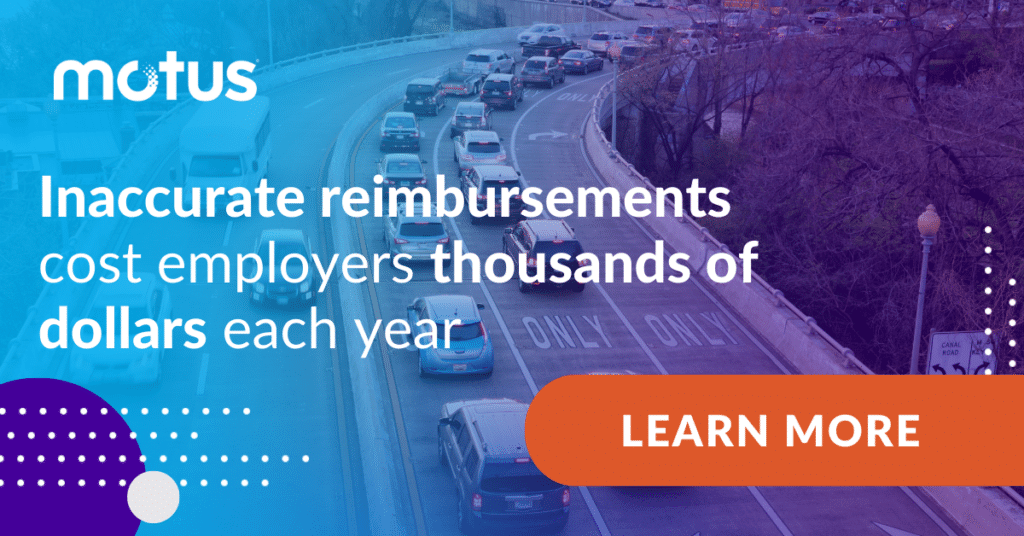Out of the 50 states that make up the union, California is definitely in the top five for coverage. Hate it or love it, they’re doing things that are newsworthy. One area that’s particularly newsworthy is the laws they pass around labor. Now, reimbursement for mobile workers can be tricky and ambiguous for companies across the country. Employees want reimbursements for their actual expenses. Employers want transparency into whatever it is they’re reimbursing for. And California Labor Code Section 2802 has a wide-reaching impact.
California Labor Code Section 2802
California has seen employees wanting fair reimbursements and employers wanting transparency for decades. It’s been a cycle. And this cycle gave rise to the state’s well known, intricate labor laws. The best representation of this? California Labor Code Section 2802. This law states that employers should reimburse employees for each and every expense that they incur throughout the course of doing business. Employers that do not closely abided by this law suffer the consequences. That includes potential exposure to messy, employee-triggered lawsuits that typically come along with additional fees and interest. To provide a tangible example, in Gattuso v Harte-Hanks Shoppers, the California Supreme Court ruled that employees should be reimbursed for any and every expense they incur (including automobile expenses).
California Mileage Reimbursement
California Labor Code Section 2802 clearly includes automobile expenses. And a big example would be mileage reimbursement. Companies of all sizes across a wide range of industries need their employees to drive for work. Some of those companies provide them with fleet vehicles. Others require employees to drive their personal vehicles for business. Companies should pay their employees for that business use, and that’s what California’s Labor Law states.
Federal vs State Mileage Reimbursement
Every year (and in dire circumstances, more than once), the IRS announces the mileage rate. Employers use this rate to ensure the reimbursements they provide employees with aren’t taxed. And, believe it or not, California has the same IRS mileage rate as every other state. They don’t come up with their own rate. Unlike California, many other states don’t have the labor laws that guarantee employers reimburse employees. But we’re starting to see that change.
Why California?
One essential thing to note? These types of labor laws are not strictly specific to California. The state is home to the nation’s largest population, and many of its citizens are not afraid of political involvement. Historically, California has been a leader in drafting legislation that ranges from the environment to cybersecurity. For these reasons, California is a model other states follow.
Companies Pay the Price for Inaccurate Reimbursements
Companies in California have had to pay millions in settlements in recent history. RadioShack paid a $4.5 million settlement when their policy was found in violation of CA 2802; the company only reimbursed mobile workers if they followed proper company procedure when submitting expenses. Crossmark, Inc., reached a $1 million settlement with nearly 6,000 employees who claimed they were not fairly reimbursed for travel and business-related expenses. Toys “R” Us has been involved in a similar lawsuit for allegedly not fully reimbursing employees who were required to attend offsite meetings (at least seven per year), transport materials, and more. Walgreens recently paid $23 million as part of nine consolidated class action lawsuits filed in California federal court, $1.5 million of which was for violating CA 2802.
Why Other States Are Beginning to Follow Suit
Make no mistake, this is not strictly a “California problem.” Grave consequences accompany inaccurate or unjustifiable reimbursements for employees. For that reason, other states in the U.S. have already begun to follow the lead of California Labor Code Section 2802. In Massachusetts, employers must reimburse employees for the excess time and expenses that may occur in the event they report somewhere that’s not considered their typical place of work. New Hampshire maintains labor code that states employers should reimburse employees for any expenses that are considered outside of their pre-determined expenses. In the Midwest, both North and South Dakota have labor language that mirrors that of California.
Other states, such as Louisiana, don’t have specific labor laws that directly correlate to California Labor Code Section 2802. Still, they do have certain civil codes that seem to highlight some similarities. Louisiana Civil Code 2298 states that “A person who has been enriched without cause at the expense of another person is bound to compensate that person…[regulation measures] the amount of compensation due… by the extent to which one has been enriched or the other has been impoverished, whichever is less”. As this scenario relates to reimbursement, the employer could be the enriched, and the employee impoverished.
Scholars have been connecting the dots between California Labor Code Section 2802 and labor laws in other states for quite some time now – and for good reason.
Other Ways of Calculating Mileage Reimbursement
What do all the above lawsuits have in common? Each could have been avoided easily with an accurate vehicle reimbursement methodology. When it comes to reimbursing mobile workers for business mileage, employers have a number of options. Some are easier, some are more wasteful, some are more accurate. The most popular methods include car allowance, cents-per-mile and fixed and variable rate (FAVR). Let’s have a quick look at each of them, starting with perhaps the worst option.
Expensing Driving Costs
Hypothetically, a company could have driving employees expense everything. They’d just send in receipts for fuel, oil changes, tolls and everything else. But this would be a nightmare for a number of reasons. For starters, the mobile worker has to submit each of those expenses. You won’t find too many people raising their hands to do that. Then someone has to look through all those expenses. And that’s also a yikes. Finally, companies should be paying for business use, but this doesn’t have an easy way to separate the business use from the personal use. For so many reasons, don’t use this method. Forget you even read about it.
Car Allowance
Car allowances are a popular option because they’re simply. Companies simply pay their drivers a flat sum each month. And that sum doesn’t change, making it easy for finance to budget for it too. Only, these monthly stipends have no connection to the miles people are driving for work. Because of this disconnect, the IRS considers car allowances to be “additional income.” That makes them taxable. Unless you’re using an accountable plan, those taxes really add up.
Cents-per-mile
With this program, also traditionally called a mileage reimbursement, employers pay mobile workers cents per mile. The cents-per-mile reimbursement rate is often the IRS mileage rate we talked about earlier. However, for reasons we get into here, that isn’t always an accurate choice. There is an ideal mobile workforce size and average miles driven. If your company is in that sweet spot, the program works swell. If it doesn’t fit the parameters, there are other options that will make a better fit.
Fixed and Variable Rate (FAVR)
Companies with Fixed and Variable Rate (FAVR) reimbursement programs like them for a few reasons. For one, it’s a tax-free program. For another, it’s based in IRS methodology and it’s highly configurable. Companies provide employees at rates based on the fixed and variable costs of driving. Fixed costs, or costs that don’t change much, include depreciation, insurance, taxes & fees. Variable costs, or costs that change frequently, include fuel and maintenance.
With the right vendor, these costs are specific to the location each employee drives. When costs in their area shift, the reimbursements update to reflect those changes. This adaptability makes it a great option for companies because cost components can be configured within the guardrails defined by the IRS to create tax-free reimbursements that meet a wide range of business goals.
Ensuring Accurate Mileage
How can your company reimburse its employees appropriately? The vehicle program you use is the framework, but accurate reimbursements require a record of business mileage. Some companies rely on manual mileage tracking, where employees record the necessary information by hand. Unfortunately, this option can lead to mileage fraud.
The most accurate option requires a mileage capture app. This enables employees to record their miles with pinpoint accuracy and submit them directly from their phone. No more time wasted recording trips on paper. Mobile workers simply set up the app and go about their day!
Other Reimbursement Concerns
As of 2020, California’s Assembly Bill 5 went into affect. This bill changed the criteria used to define contractors and employees. Unless employers could prove three conditions establishing a contract worker, the worker was to be considered an employee. That could have a significant impact on the reimbursement process for certain individuals in the company. You can learn more about AB5 and its impact in our blog.
The Bottom Line
Inaccurate or unjustifiable reimbursement for your mobile workers can land your company into danger, most often in the form of costly lawsuits (some of which can reach close to seven figures). In order to mitigate such risk, companies should look to fair and accurate vehicle programs that will be beneficial in the long run. Check out our guide to learn more about California Labor Code Section 2802.
Disclaimer: Motus prepared this material for informational purposes only. Motus does not intended to provide, and should not be relied upon for, tax, legal, or accounting advice. Motus does not provide tax, legal, or accounting advice. For any such advice, you should consult your own advisors.









